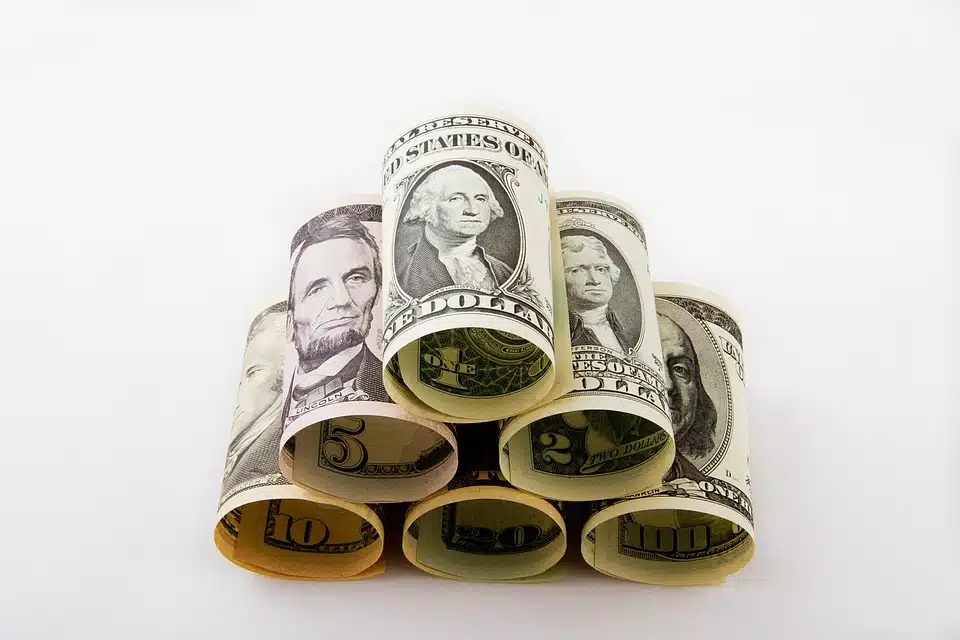The recent collapse of Silicon Valley Bank and Signature Bank, followed by troubles faced by Switzerland’s Credit Suisse, has sent shockwaves throughout the financial world. Traders and investors are worried about the possibility of a new global financial crisis, similar to the one that occurred in 2008.
This has led to increased expectations of a series of interest rate cuts by the Federal Reserve. In fact, many traders are now pricing in a 64.7% chance that the fed funds rate target will drop to between 3.5% and 3.75%, or even lower, by December 2023. This would represent a significant decrease from the current target of 4.5% and 4.75%, implying at least a 100 basis point reduction in interest rates by the end of 2023.
The Federal Reserve has been closely monitoring economic indicators and market signals in recent months. Despite the fact that the US economy has been performing well and unemployment is at a record low, there has been increasing concern about global economic conditions, especially given the continued trade tensions between the US and China.
Additionally, the collapse of several major banks has raised questions about the stability of the financial system. The Fed has indicated that it is prepared to take action if necessary to prevent a financial crisis. This has increased expectations of interest rate cuts and other measures designed to stimulate the economy and provide stability to the financial system.
However, there is no guarantee that interest rate cuts will occur. The Federal Reserve has emphasized that it will take a data-driven approach, and will only make adjustments to interest rates if economic indicators warrant such action.
There are a number of factors that could influence the Fed’s decision regarding interest rates. One key consideration is the state of the US economy. While unemployment is currently low, there are signs that the economy may be starting to slow down.
Business investment has been falling, and consumer spending has been uneven. Additionally, the ongoing trade tensions between the US and China have increased uncertainty and made it difficult for businesses to plan for the future. These factors may make it more likely that the Fed will cut interest rates to stimulate economic growth.
Another factor that may influence the Fed’s decision is inflation. Inflation has been relatively low for some time, and some analysts have suggested that it may need to increase in order to stimulate economic growth. However, if inflation were to increase too quickly, it could create a troubling scenario of rising prices and decreased purchasing power for consumers.
Ultimately, the decision to cut interest rates will depend on a number of factors, including economic indicators, inflation, and the stability of the financial system. If the Fed does decide to cut interest rates, it is likely to occur gradually, over a period of several months.
However, even a small rate cut could have a significant impact on the economy. Lower interest rates make it cheaper for businesses and consumers to borrow money, which can stimulate economic growth. Additionally, lower interest rates can boost asset prices, such as stocks and real estate.
On the other hand, lower interest rates can also have some negative effects. For example, they can contribute to inflation, and can make it more difficult for savers to earn a decent return on their investments. Additionally, lower interest rates can make it more difficult for pension funds and other institutional investors to achieve their investment goals.
In conclusion, the recent collapse of major banks and ongoing trade tensions have raised concerns about the stability of the financial system, and have increased expectations of interest rate cuts by the Federal Reserve. While there is no guarantee that interest rate cuts will occur, the Fed has emphasized its willingness to take action if necessary to prevent a financial crisis. The decision to cut interest rates will depend on a number of factors, including economic indicators, inflation, and the stability of the financial system. Even a small rate cut could have a significant impact on the economy, both positive and negative, and investors and traders will be closely monitoring the situation in the coming months.


